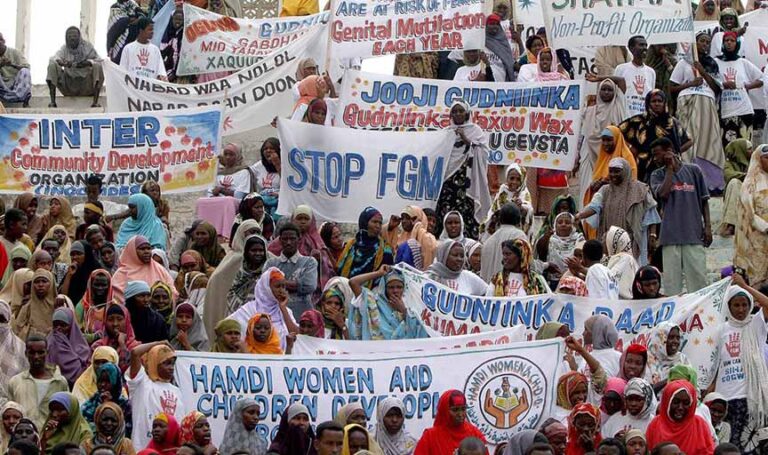Three young girls in Sierra Leone have died after female genital mutilation rituals despite calls for ban

On Friday 2 February 2024, The Guardian reported that three girls in Sierra Leone had died after female genital mutilation procedures.
Female genital mutilation (FGM) remains legal in Sierra Leone, despite calls from activists and human rights advocates for the practice to be criminalised.
The girls, whose ages spanned from 12 to 17, were named Adamsay Sesay, Salamatu Jalloh, and Kadiatu Bangura. The procedures were carried out in Sierra Leone’s North West province last month, according to local reports.
FGM involves the ritual cutting or removal of some or all of the external female genitalia. The practice can still be found in some countries within Africa, Asia and the Middle East, despite the UN having classed it as a violation of women’s and girls’ human rights.
In 2012, the UN unanimously passed a resolution to ban FGM, but it is still practised in roughly 30 countries. A national survey in 2019 found that 83 per cent of women had undergone FGM, a slight drop from 90 per cent in 2013. The same survey showed that among women who have heard of FGM, 48 per cent believe that it is not a requirement of their religion. A further 34 per cent believe that FGM should not be continued.
The procedure is part of a traditional initiation ritual that has deep roots in Sierra Leonean culture and politics. It marks a girl’s entry into womanhood and is usually carried out by the soweis, senior members of the secret, all-women Bondo societies. Bondo societies are steeped in mythology and have the genital mutilation of young girls and women as a central pillar.
Divya Srinivasan, who is a leading individual working on ending these harmful practices at the NGO Equality Now, stated: “It is completely unacceptable that despite women and girls continuing to die from FGM in Sierra Leone, there remains complete apathy from the government and an unwillingness to take desperately needed action to prevent these deaths or prohibit the practice.”





